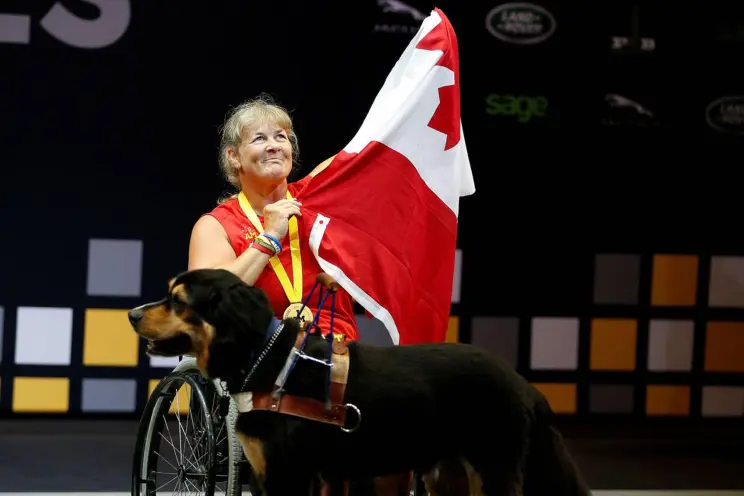The phenomenon of ‘wokeism’ (vaguely defined as the promotion of liberal progressive ideology) has spread across the Western world at breakneck speed. It has completely taken over North America, infiltrated most of Europe, seeped into Latin America and made inroads even in conservative countries such as Israel. When you hear constant news about individuals (writers, academics, singers, etc.) who are being canceled for their views and who are afraid to speak out in public, and when you hear loud noises from the transgender movement, you know that you are in a woke country. The main pillars of wokeism appear to be: equality (everyone is equal), identity (you are whoever you say you are), exaltation of individual rights and intolerance for anyone who opposes these views.
American comedian Bill Maker recently accused wokeism of trying to reinvent the very nature of human beings and showing the same intolerance to opponents as autocratic regimes. The ‘woke left’ he said are like the Chinese Red Guard revolutionaries who publicly shamed their critics and sent them to reeducation camps – just like those who step out of line today, even in top academic posts, are being cancelled or obliged to undergo “diversity training.”
Some say that, by blurring the boundaries between gender (wokeism claims there is no such thing as a woman or a man, only who a person identifies as), by encouraging gender fluidity and transitions, by attacking moral values of good and evil and traditional institutions such as the family and religion, by normalizing pervert conduct (in the U.S. pedophiles are being renamed minor-attracted people), by promoting the sexualization of children, etc. wokeism is trying to destroy Western civilization.
Russian President Putin has often poked fun at the West and its self-flagellating debates on gender, systemic racism and white supremacy. He is one of those who maintains that wokeism and its far-left progressiveness is fast destroying Western civilization. Lately, a pushback against woke ideology is beginning to be felt in countries led by right-wing parties. In Hungary, President Victor Orban has taken steps to counter wokeism and protect the traditional Christian values of his country. He has banned LGBTQ content in schools and in TV programs for under 18s and launched a campaign to strengthen religious, national and family values. In Israel, PM Netanyahu’s right wing government has pledged to ban progressive “woke” educational programs in schools and strengthen Jewish identity by giving Judaism a greater role in the state.
At the opposite end of the spectrum, Canada – a country once admired for its tolerant, moderate, compassionate society – has become the ultimate woke country. In Ontario, the educational authorities have allowed a transgender teacher flaunting huge prosthetic breasts to continue teaching young children. Apparently, the authorities fear that taking measures against the teacher would offend the sensitivities of the LGBTQ community. Protecting children seems to be of secondary importance.
And, now, with its new progressive euthanasia – Medical Assistance in Dying (MAID) – law, Canada has taken wokeism to new heights of negativity and destructiveness. Canada’s euthanasia law first came into effect in 2015 and has since been so radically amended in favor of ‘liberalism’ and the right of the individual to die that it ranks today as the most permissible euthanasia law in the world.
- In Canada, it is no longer required to be terminally ill to qualify for ‘assisted death’ – it is enough to be disabled or incapacitated.
- The 10 day waiting period between a request to die and the issuance of authorization has been removed; authorization for assisted death can be received within 24 hours.
- The request to die does not have to be given in writing, it can be made verbally.
- Physicians are not required to sign the authorization; this can be done by two nurses or medical practitioners, even pharmacists.
- Beginning in March 2023, people who suffer solely from mental illness will be eligible for the program.
Last year as many as 10,000 people died in Canada as part of the country’s assisted death program. These numbers could in fact be much higher since they only cover cases where the requests to die were made in writing. In addition, physicians in some states, such as Ontario and Quebec, are instructed not to list cause of death as “medically assisted.”
The extent to which the program has become extreme in Canada can be gauged by a comparison with other countries. In the Netherlands – the first country to authorize euthanasia (in 2002) – a person needs to suffer from an incurable illness to qualify for euthanasia and all treatment alternatives must have been exhausted, requests to die have to be made in writing and can only be authorized by a physician, and all cases have to be reported to a regional review committee to ensure due care by the physician. In Belgium, also a pioneer in the field, physicians are advised not to mention euthanasia to patients. No such restriction exists in Canada where medical staff are allowed to inform patients about the MAID program as a possible “clinical care option.”
It appears that Canada has done away with the traditional safeguards which countries elsewhere instituted in order to protect people and prevent abuse. Sheila Gunn, a journalist with the Canadian media outlet, Rebel News, has documented the issue and lists some of the problematic cases involved in the program. “We know,” she says, “of cases involving:
- pensioners and disabled people who requested euthanasia because they had difficulty coping or could not afford home care.
- veterans suffering from PTSD (post-traumatic stress disorder) who requested euthanasia.
- mentally ill people who requested euthanasia.”
Gunn says the law reflects a system of distorted values: “it takes 180 days to get knee surgery in Canada but assisted dying service can be obtained in one day!” It makes one wonder whether Canada, under the guise of liberalism, has in fact taken a pragmatic approach to the problem of caring for the disabled and chronically ill and opted for the least expensive “clinical care option.”
Certainly, the fact that medical practitioners are free to “offer” euthanasia to a patient as an option is highly problematic. One such case has caused shock ripples across the country. In December 2022, Christine Gauthier, a retired Army Corporal and paraplegic, testified before the Canadian parliament that a caseworker had offered her euthanasia after she complained about delays in having a wheelchair ramp installed in her home. Gauthier has been waiting five years for the wheelchair. In response to her complaint, the caseworker told her: “You should take advantage of our government-funded euthanasia program.” Speaking on Fox News, Gauthier vented her frustration at the Canadian government: “This is crazy,” she said, “I need to live but the government wants to help me die!”
Gauthier’s case highlighted the moral ramifications of a liberal law that makes euthanasia easily accessible to the disabled. While, as an army veteran, Gauthier had the mental strength and resourcefulness to fight a flagrantly unjust and immoral system, others were not so lucky. 41 year old Sean Tagart of British Columbia, who suffered from Lou Gehrig’s disease, did not have enough money to pay for all the care he needed. He tried raising funds privately but this too was insufficient, so in 2019 he asked to be euthanized. Other disabled people such as Roger Foley of London, Ontario, who suffers from a brain disorder and Candice Lewis of Newfoundland, who suffers from cerebral palsy, reported that they were told they should consider euthanasia as an option.
Canada’s law has been described by Prof. Tim Stainton of the Canadian Institute for Inclusion and Citizenship as “probably the biggest existential threat to disabled people since the Nazis’ program in Germany in the 1930s.”
Another controversial case demonstrated the dangers of allowing mentally ill people access to the assisted dying program. In June, 2019, 61 year old Alan Nichols was hospitalized with suicidal tendencies. He suffered from depression, had a history of seizures and other medical issues, such as hearing loss, none of which were incurable. In the course of just one month, he made a request for euthanasia, his request was granted and he died. Shocked at this death, his family lodged a complaint with the authorities. A police enquiry concluded that Nichols made a valid request for euthanasia while the hospital told his family that, in line with patient privacy, it was not obligated to inform Nichols’ relatives of his request.
No recourse for the family and no way of holding the hospital and relevant staff responsible for what was clearly an unnecessary death.
Canada is due soon to expand its euthanasia program to allow people to be euthanized solely for mental health reasons and to enable children under 18 to benefit from the program. Even before this happens, Gunn says that she knows of cases where parents of sick children were offered the service. “This is what it means to be woke in Canada today.”
Before she left her post, former Canadian human rights commissioner, Marie-Claude Landry highlighted the moral dilemma of the country’s euthanasia program: “In an era where we recognize the right to die with dignity,” she said, “We must do more to guarantee the right to live with dignity.”






